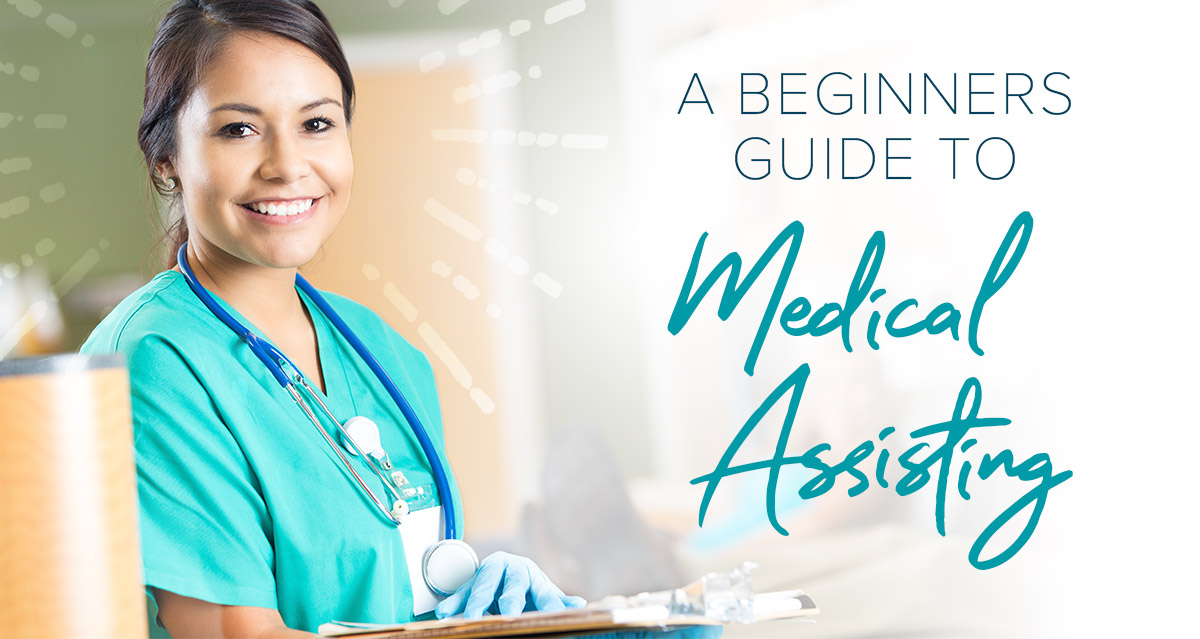
Medical Assistant – A Beginner’s Guide
Have you been giving a career in the healthcare industry some serious thought? If earning your living by helping others aligns with your career goals, a career as a Medical Assistant could be the right fit for you! But you may be wondering what does a Medical Assistant do daily? What is the training like and how long does it take? Where can I work when I complete my training? You’ve got questions – we’ve got answers. Check out our beginner’s guide to the world of medical assisting.
What is a Medical Assistant?
Doctor’s offices, Clinics, Urgent Care, Insurance companies, Hospitals, and ERs depend on the professional support provided by medical assistants. This essential role is part clinical and part administrative and requires a diverse set of skills, not to mention – compassion and empathy to spare.
Routine Duties
Medical assisting duties often vary depending on the type of facility you work in. But for the most part, you’ll be performing clinical duties under the supervision of a registered nurse or doctor, as well as a variety of administrative tasks. The list breaks down the clinical and administrative functions you can expect to perform as a Medical Assistant.
- Clinical duties
- Drawing blood
- Recording vital signs
- Patient triage
- Specimen collection and prep for lab testing
- Administering medication
- Injections (some states have restrictions)
- Assist with patient exams
- Administrative duties
- Patient Intake / Document medical history
- Appointment and procedure scheduling
- Data Entry / Electronic Health Records
- Maintain medical records
- Medical billing and coding
- Customer service
- Prepare patients for exams
What Kind of Training Do I Need?
The certification requirements for Medical Assistants vary from state to state. And while the State of Florida doesn’t require individuals to hold certification, many employers do. So, getting your training in a program that offers certification may increase the number of opportunities available to you.
What Will I Be Learning?
One of the things that make Medical Assistants so indispensable is their versatility. Curriculum typically consists of both clinical and administrative studies, and some of the courses include:
- Psychology
- Medical Business Communications
- Vital Sign Recording
- Phlebotomy
- Insurance and Billing
- Specimen Collection and Processing
- Electronic Health Records Management
- Many programs also include externships at offsite medical facilities.
You’ll learn valuable critical thinking and problem-solving skills in a real clinical environment. You’ll also be learning how to interact with patients and their families.
How Long Does It Take to Become a Medical Assistant?
Most degree programs can be completed in less than two years. And most diploma programs can be completed in under a year, making it a faster track to joining the workforce.
Where Can I Seek Employment?
- Doctor’s Offices
- Clinics
- Long Term Care Facilities
- Schools
- Hospitals & Emergency Rooms
- Government Agencies
Where Should I Get My Training?
There are some schools that offer more comprehensive training to students interested in expanding their opportunities. For example, the Medical Assisting Program at Daytona College is a 70-week program where graduates earn an Associate Degree upon completion. The program also offers off-campus externships in actual medical facilities, where students get real-world training in a clinical environment. Graduates are eligible to take the RMA exam and also qualify to take the EKG Technician Certification (CET) and Phlebotomy Technician Certification (CPT) exams through the National Healthcare Association.
For students seeking an even faster-track to earning, Daytona College offers the Medical Assistant Diploma Program as well. The diploma program can be completed in 40 weeks. Graduates of the diploma program are also eligible to take the RMA, CET, and CPT exams. A career that offers long-term job prospects, the ability to touch people’s lives positively, and is not likely to ever be dull – sounds pretty great. Throw in the life-long friendships that come from being an integral part of a medical team, and you might find yourself loving what you do for a living! If you’d like to learn more about a career in Medical Assisting, contact Daytona College at (386) 267-0565.
